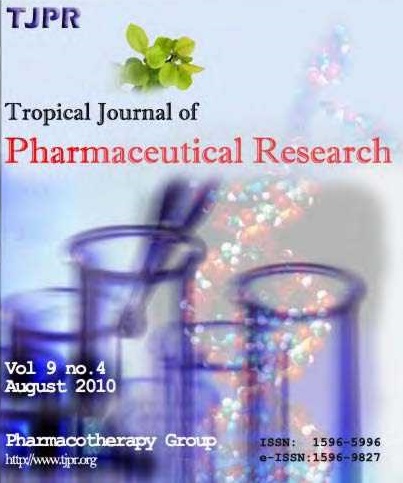乙酰半胱氨酸联合甲基强的松龙治疗百草枯中毒的疗效观察
IF 0.6
4区 医学
Q4 PHARMACOLOGY & PHARMACY
引用次数: 0
摘要
目的:探讨乙酰半胱氨酸联合甲基强的松龙治疗百草枯中毒的临床疗效。方法:对我院收治的92例PQP患者1年的临床资料进行分析。根据治疗方案将患者平均分为对照组(CG)和研究组(SG)。所有患者均接受常规急性期治疗,而SG在此基础上接受乙酰半胱氨酸联合甲基强的松龙治疗。治疗后,检测两组患者肾功能、肺纤维化指标及炎症因子水平。结果:治疗1 ~ 4周,患者各时间段生存率比较,差异无统计学意义(p >0.05)。治疗后,SG组血尿素氮(BUN)和血清肌酐(SCr)水平明显低于CG组。SG组肺纤维化发生率低于CG组,但差异无统计学意义。SG组患者HRCT评分及c反应蛋白(CRP)、白细胞介素-6 (IL-6)、肿瘤坏死因子-α (TNF-α)水平均低于CG组(p <0.05)。结论:乙酰半胱氨酸联合甲基强的松龙可显著降低肺纤维化程度,改善肾功能和炎症水平。对患者的早期治疗,特别是对轻中度中毒患者的预后有积极意义。因此,联合治疗具有临床应用潜力。本文章由计算机程序翻译,如有差异,请以英文原文为准。
Efficacy of combined use of acetylcysteine and methylprednisolone in the treatment of paraquat poisoning
Purpose: To investigate the clinical impact of combined application of acetylcysteine and methylprednisolone in treating paraquat poisoning (PQP).Methods: The clinical data of 92 PQP patients who received treatment in our hospital for 1 year were analyzed. The patients were equally divided into control group (CG) and study group (SG), based on treatment plans. All patients underwent routine acute-phase treatment, while SG was additionally treated with acetylcysteine in combination with methylprednisolone. After treatment, the renal function, pulmonary fibrosis indices and inflammatory factor levels of both groups were determined.Results: During the 1 - 4 weeks of treatment, there was no statistical difference in the survival rates of patients at various time periods (p > 0.05). After treatment, there were markedly lower levels of blood urea nitrogen (BUN) and serum creatinine (SCr) in SG than in CG. There was lower incidence of pulmonary fibrosis in SG than in CG, although the difference was not significant. Patients in SG had lower HRCT scores and levels of C-reactive protein (CRP), interleukin-6 (IL-6) and tumor necrosis factor-α (TNF-α) than those in CG (p < 0.05).Conclusion: Acetylcysteine in combination with methylprednisolone significantly reduces the degree of pulmonary fibrosis and improves renal function and inflammatory levels. It has a positive implication for early treatment of patients, especially for the prognosis of patients with mild-to-moderate poisoning. Therefore, the combined therapy has potential for clinical application.
求助全文
通过发布文献求助,成功后即可免费获取论文全文。
去求助
来源期刊
CiteScore
1.00
自引率
33.30%
发文量
490
审稿时长
4-8 weeks
期刊介绍:
We seek to encourage pharmaceutical and allied research of tropical and international relevance and to foster multidisciplinary research and collaboration among scientists, the pharmaceutical industry and the healthcare professionals.
We publish articles in pharmaceutical sciences and related disciplines (including biotechnology, cell and molecular biology, drug utilization including adverse drug events, medical and other life sciences, and related engineering fields). Although primarily devoted to original research papers, we welcome reviews on current topics of special interest and relevance.

 求助内容:
求助内容: 应助结果提醒方式:
应助结果提醒方式:


